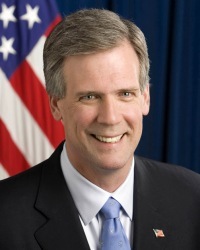A Quote by Simon R. Green
Related Quotes
Always' was a promise! How can you just break the promise?" "Sometimes people don't always understand the promises they're making when they make them," I said. Isaac shot me a look. "Right, of course. But you keep the promise anyway. That's what love is. Love is keeping the promise anyway. Don't you believe in true love?" I didn't answer. I didn't have an answer. But I thought that if true love did exist, that was a pretty good definition of it.
Drawing prayer circles isn’t about proving yourself to God; it’s about giving God an opportunity to prove Himself to you. Just in case you have forgotten — and to ensure that you always remember — God is for you. I can’t promise that God will always give you the answer you want. I can’t promise that He’ll answer on your timeline. But I can promise this: He answers every prayer, and He keeps every promise. That is who He is. That is what He does.
Feuerbach ... recognizes ... "even love, in itself the truest, most inward sentiment, becomes an obscure, illusory one through religiousness, since religious love loves man only for God's sake, therefore loves man only apparently, but in truth God only." Is this different with moral love? Does it love the man, this man for this man's sake, or for morality's sake, for Man's sake, and so-for homo homini Deus-for God's sake?
Man depends on God for all things: God depends on man for one. Without man's love God does not exist as God, only as creator, and love is the one thing no one, not even God himself, can command. It is a free gift or it is nothing. And it is most itself, most free, when it is offered in spite of suffering, of injustice, and of death . . . The justification of the injustice of the universe is not our blind acceptance of God's inexplicable will, nor our trust in God's love, his dark and incomprehensible love, for us, but our human love, notwithstanding anything, for him.
The problem of reconciling human suffering with the existence of a God who loves, is only insoluble so long as we attach a trivial meaning to the word "love", and look on things as if man were the centre of them. Man is not the centre. God does not exist for the sake of man. Man does not exist for his own sake. "Thou hast created all things, and for thy pleasure they are and were created." We were made not primarily that we may love God (though we were made for that too) but that God may love us, that we may become objects in which the divine love may rest "well pleased".
By His gracious condescension God became man and is called man for the sake of man and by exchanging His condition for ours revealed the power that elevates man to God through his love for God and brings God down to man because of His love for man. By this blessed inversion, man is made God by divinization and God is made man by hominization. For the Word of God and God wills always and in all things to accomplish the mystery of His embodiment.
God never promises exemption. He does promise companionship, which is better. He does not promise do deliver you or me or any other individual from pain, sorrow, or economic disaster, but He does give assurance the He will help us through and that there will be compensations. "I will not leave you comfortless, I will come to you." These are the words of Jesus.
When God calls a man, He does not repent of it. God does not, as many friends do, love one day, and hate another; or as princes, who make their subjects favourites, and afterwards throw theminto prison. This is the blessedness of a saint; his condition admits of no alteration. God's call is founded upon His decree, and His decree is immutable. Acts of grace cannot be reversed.God blots out His people's sins, but not their names.
Evil does not exist sir, or at least it does not exist unto itself. Evil is simply the absence of God. It is just like darkness and cold, a word that man has created to describe the absence of God. God did not create evil. Evil is not like faith, or love that exist just as does light and heat. Evil is the result of what happens when man does not have God's love present in his heart. It's like the cold that comes when there is no heat or the darkness that comes when there is no light.

































